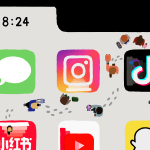On a good day, they’re the people who protect you when you’re walking home late at night, track down the person who stole your wallet and save you when your life is at risk. On a bad day, they’re the people who give you a speeding ticket for going 5 miles per hour over the speed limit, break up your house party and, in some unfortunate cases, put your life in danger. Everyone has mixed feelings about the police force based on their experiences, but in the end, their mission is to protect society, right?
Americans were encouraged to celebrate the third annual “Thank a Police Officer Day” on Sunday. This day of thanks was developed by the Chicago-based law enforcement defense firm Andrew M. Hale and Associates as an incentive to encourage people to appreciate the work of the police force. It is part of the firm’s larger initiative, The Whole Truth Project, which is primarily concerned with ensuring police officers are not wrongfully sued.
“Although wrongful convictions, when they do happen, are terrible, so are ‘wrongful police lawsuits’ — where an honest, hardworking police officer can be hit with punitive damages (that come out of their pocket) and a City can be hit with a huge multi-million dollar verdict (causing severe financial distress),” the website states.
The appreciation day had its own Facebook page and social media campaign, complete with its very own hashtag (#thankapoliceofficerday, of course). The campaign encouraged social media users to post on Facebook, Instagram and Twitter describing all the reasons they are thankful for police officers. While many people complied with the celebration of cops, other people turned to these social media outlets and public protests to express all of the reasons they despised law enforcement as well.
Accusations of police abuse flooded the Internet, most concerning the alleged violence of cops in situations such as the August 2014 shooting of Michael Brown and the February 2012 shooting of Trayvon Martin.
“Let’s all be white police officers so we can murder civilians & get paid vacations #ThankAPoliceOfficerDay #Ferguson,” tweeted one Twitter user on Sunday, reflecting the sentiments of many other police-wary people.
“It hasn’t gone unnoticed that you harass & interrogate my black friends when they visit my ‘white’ neighborhood. #ThankAPoliceOfficerDay,” another Twitter used tweeted.
While these loaded reactions were clearly not in the spirit of the holiday, there is something to be said about a nation where a large number of citizens are dissatisfied — and somewhat afraid — of its police force.
Police officers have a right to pat themselves on the back via a day of thanks. We celebrate the members of the military for protecting the people of our nation, and law enforcement performs a similar task. However, when social media campaigns are launched and hashtags are created, negative feedback is inevitable.
Some of the negativity can be attributed to recent events. The situation in Ferguson, Missouri is still largely on the minds of an American public who, for weeks, could not go on the Internet without reading about the law enforcement scandal of the day amidst the protests following the murder of Michael Brown by a police officer. Cries of racial profiling and police brutality dominated everyone’s Twitter feeds. After all, when people hear that a police officer murdered an 18-year-old boy, most will be horrified no matter what the circumstances.
And some of the negativity comes from the fact that cops have messed up and often do take advantage of their powers. Nobody likes being pulled over by a cop looking to intimidate when they aren’t even speeding. Cops have botched investigations, been late to respond and exercised their powers a little too enthusiastically. But nobody is perfect, and the misdemeanors of some unfortunately gain bad publicity for the cops who perform their jobs well each day.
The anonymity of the Internet makes it incredibly easy for people to say anything they want with very few consequences. This reality probably accounts for a large number of the anti-police force. What’s more, nobody, save for the campaign sponsoring this day, is going to report about the positive tweets. The more shocking and venomous the post, the more likely it is to be retweeted and disseminated throughout the Internet. Unfortunately, this leaves a negative impression of the police, thus influencing more people to hate them. The cycle is vicious, but such is the Internet.
Good cop or bad cop, law enforcement’s ultimate goal is to protect us, and although we should be vigilant for those abusing that power, the responsibilities of the police force are worth appreciating.




